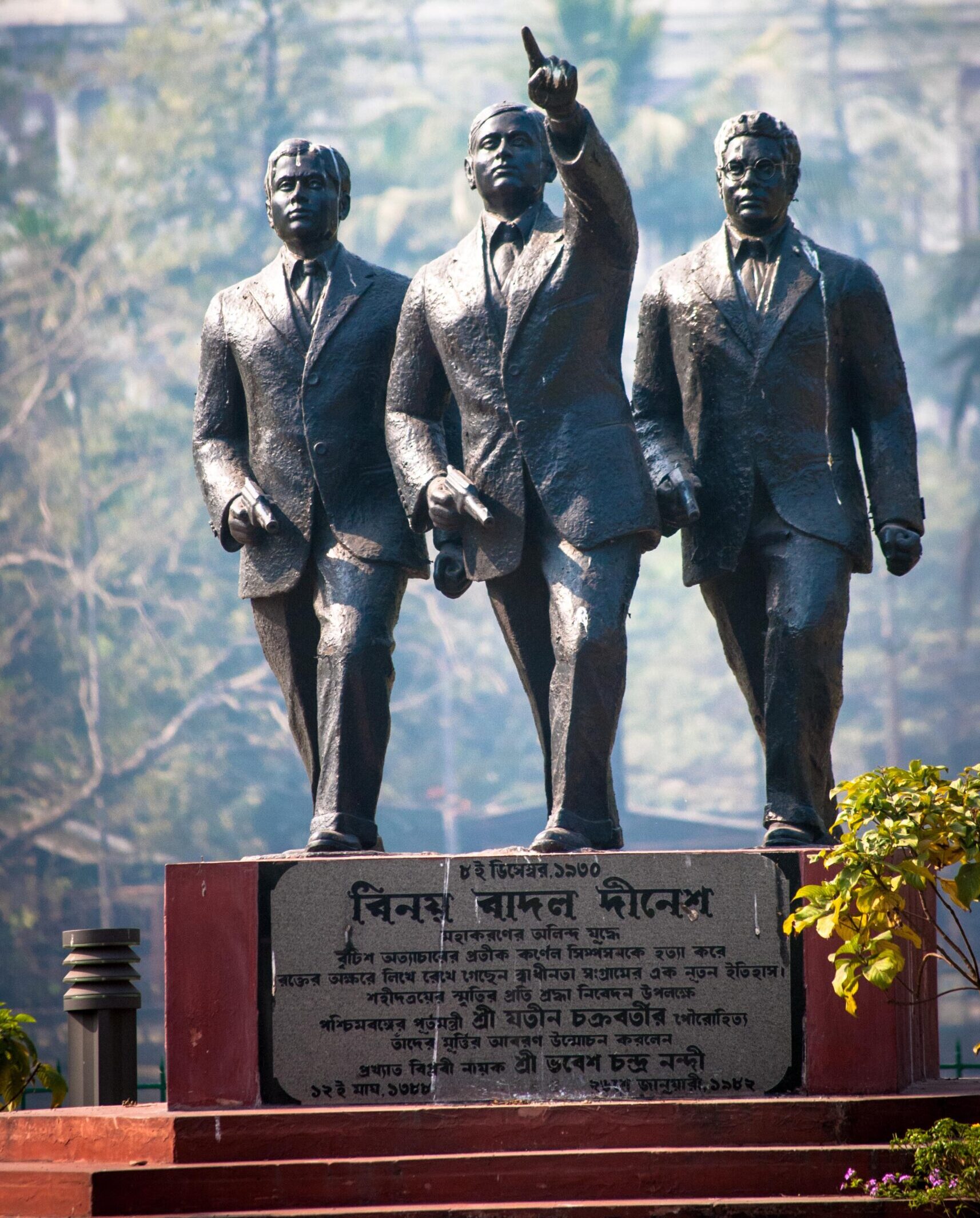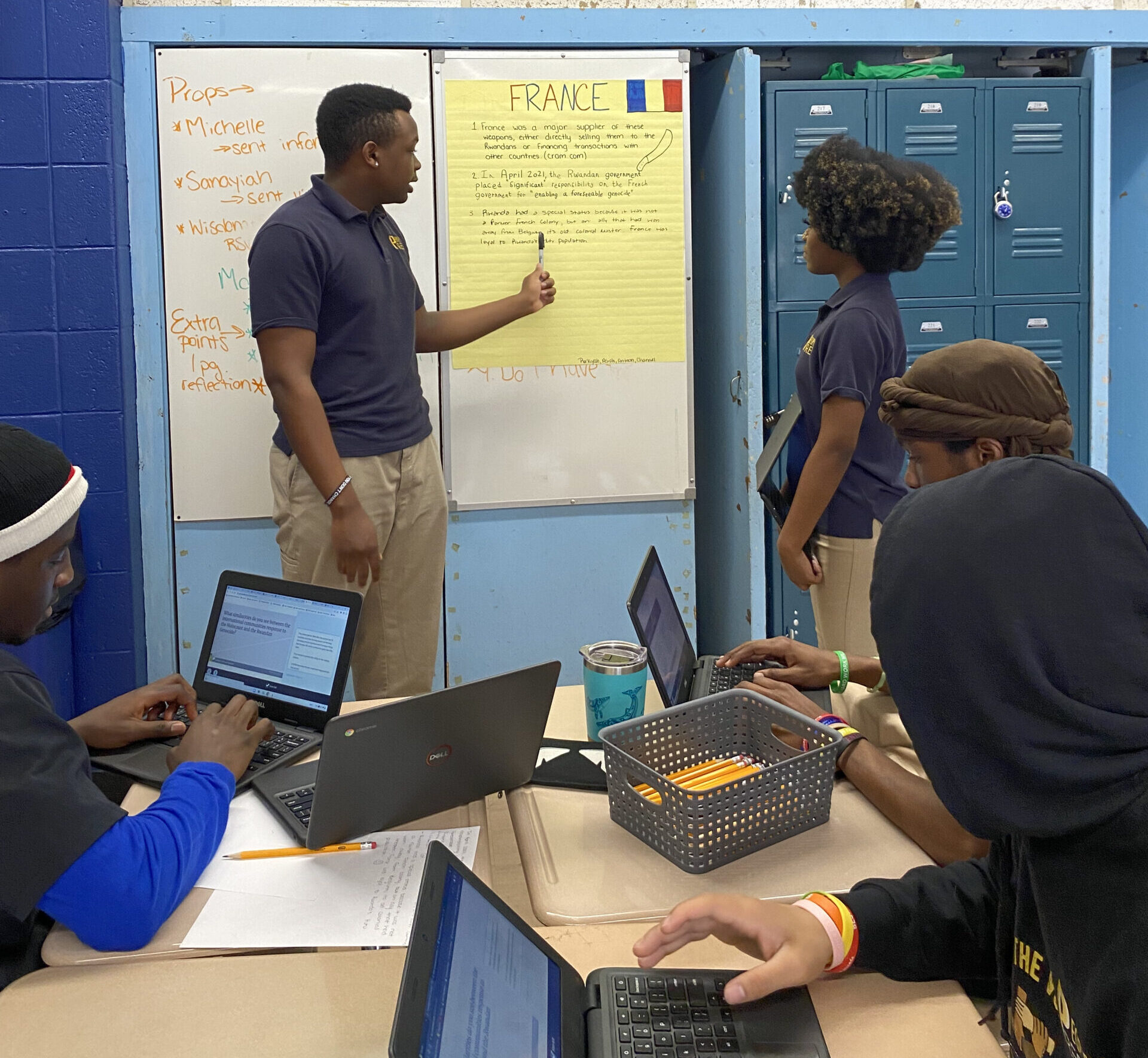Professor Nobile’s disturbing report of his experience as a white man teaching African American history explicitly affirms that “communication” is at the heart of teaching. His essay is a poignant lament that, being white, he can no longer communicate to black students, because his audience refuses to listen. To be sure, Nobile initially casts the problem as a quite different, ethical one: “In this age of multiculturalism, should whites teach African American history?” Yet, obviously, if audience resistance makes it impossible to teach, then the question of should is irrelevant.
Presuming that there is good faith on the teacher’s side—that he has tried to be comprehensive and accurate in his reconstruction of the past and that there is a genuine desire to share that reconstruction with the student—a central question is why some African American students (and those frequently the most voluble, perhaps even intimidating, among them) appear to be refusing to let constructive communication take place. The answer ought not to be, as Professor Nobile implies, “multiculturalism”—or, at least, not multiculturalism as I would like to understand it. One might hope that the word would connote a recognition, undergirded by historical research, of the multiple contributions of various social, political, economic, ethnic, sexual, religious, and racial groups to an array of cultural phenomena.
But, of course, the word “multiculturalism” can be said to engender a multitude of rather more sinister ideologies: it is the Afrocentric project that Nobile condemns. The defenders of Afrocentrism implicitly or explicitly cover themselves in the mantle of multiculturalism in order to validate this project: if multiculturalism is to prevail, then, we are led to believe, the individual cultures that will compete for recognition of their unique contributions to human progress (note the whiggishness) must be allowed to construct heroic (“their own”) pasts for themselves. In this view, white historians are not entirely to be trusted to do so, because of the earlier distortions they or their predecessors imposed on the story of African and African American achievement.
At their worst, then, Afrocentrists will assert that every good thing came out of Africa; and that every great discovery is racially based. Partly, the grotesque distortions pay back other cultural traditions (read: Eurocentrism) for the irreducibly vicious hegemony which they exercised for so long. But partly, as the last sentence hints at already, I (assuming the persona of a radical Afrocentrist) can finally feel good about myself because of my heroic Afrocentrist past. I—in 1993—can reach true self-worth by believing wonderful things, marvelous things about that part of my heritage that flourished on the continent of Africa two or three thousand years ago. Whether those things are true or not (what is truth?), I can feel good if Cleopatra was black. Nay, more: I feel empowered because Cleopatra was black. Moreover, there can be no powerful arguments against Cleopatra being black, for once asserted, the statement becomes a fact—or, perhaps, a creed; and any attempt to challenge the creed constitutes heresy if uttered by a black person (an “oreo”) or neocolonialism if uttered by a person who identifies racially or ethnically with the European part of his or her tradition. Any assessments by white scholars and teachers of traits or episodes of African or African American historical behavior as negative, compromising, or self-defeating are seen as attempts to turn the attention of the oppressed away from the crimes of their oppressors.
It does not take much empathy to recognize how disconcerting it must be to go into a classroom tainted with the most extreme of these attitudes. But if Professor Nobile is correct, why are these attitudes so prevalent among, or at least relatively unchallenged by, his African American students? The reason is simple: the enormous scale and the terrifying substance of the problems besetting the African American community and the widely perceived indifference of powerful interests (including the state) to these problems have deepened the resentments of our youth. They seek some sort of release for these frustrations; and, seduced by the ease and local publicity of posturing and being provocative, they often acquiesce in the corrupting formulations of racialists and lash out even against a person like Professor Nobile, a human person to judge from his essay. Professor Nobile is to be commended for developing devices which helped mitigate if not overcome some of the tensions in his classroom and for sticking it out as long as he did. I cannot blame him for finally giving up; it was more honorable than capitulating to his students’ demands to be taught lies.
I cannot help but think, however, of how tragic his retreat, if generalized, will be. The few “non-blacks [who took the course Professor Nobile offered] complained that the class was too much confrontation over race and too little history.” Self-debilitating Afrocentrism runs the risk of burlesquing young blacks and black aspirations in the minds of their peers in other ethnic, racial, and religious groups. In compulsory radical Afrocentric programs or multicultural programs with radical Afrocentric components in the primary and secondary public schools, the burlesquing already occurs. Some young people of WASPish backgrounds, others of Hispanic descent, leave these classes barely controlling their sniggers and their rage. Some Jews who hear about what they take to be anti-Semitic kernels of certain of these programs, but who want to preserve political ties with African American community leaders, can barely conceal theirs; others do not try.
The claims put forth as definitive knowledge by radical Afrocentric “teachers” reinforce the racism of many non-blacks, for it gives them an excuse—if they need any—to relish their hatreds. Many young blacks, at the same time, can feel deeply embarrassed by the dame outrageous claims, but are under considerable peer pressures that prevent them from speaking their minds. To be sure, not everyone will be corrupted in environments of this sort; there will always be people in elementary school, high school, and college who reject unthinking hatreds or who toy with them awhile before becoming disgusted with themselves and renewing their decency. But a great many people who need help in overcoming their prejudices will never get it in these environments; indeed, their prejudices will be so deeply confirmed that the remainder of their lives will be lived in an unrelieved Manichean drama.
None of this is to say that the hatreds and prejudices would go away if radical Afrocentrism, in its ugly manifestations, went away. None of this is meant to laud the excesses of Eurocentrism or any other distorted view of the past. But what radical Afrocentrism offers to the black community and, because of the reaction it provokes, to other communities is so perverse, so cripplingly celebratory of blacks’ own victimization, and yet so afraid to confront what the human feelings of genuine victims were like (witness Nobile’s discussion of his students’ refusal to discuss slavery) that I can only hope that this brand of Afrocentrism self-destructs from its own inner conflicts as pseudo-scholar after pseudo-scholar comes up with ever more outrageous and mutually contradictory “facts” about the African past. It is only fair to say that I do not think that this will come about easily: logical contradiction cannot of itself undermine an ideological commitment to aggressively irrational, self-referential thinking.
Is there, then, nothing else to be done? It may seem easy for me, safe in an elite institution, a mainly white school, to bewail the sins of my neighbors—expositors and consumers of radical Afrocentrism—whose frustration and rage are hardly without justification. I could ignore the situation altogether, of course. Some leaders among my race deride publishing our internal conflicts as only serving the interests of the “white establishment.” I am not entirely unsympathetic to this point of view, at least with regard to certain purely political disputes. Still, I feel constrained to raise my voice publicly against this particular form of intellectual corruption rather than watch silently as so many already marginalized young people slip further and further away from the centers of productive society while celebrating themselves in the empty mantras of obsessive Afrocentrism. I can only hope some others who feel the same way are willing to speak out as well.
William Chester Jordan is a professor of history at Princeton University.


